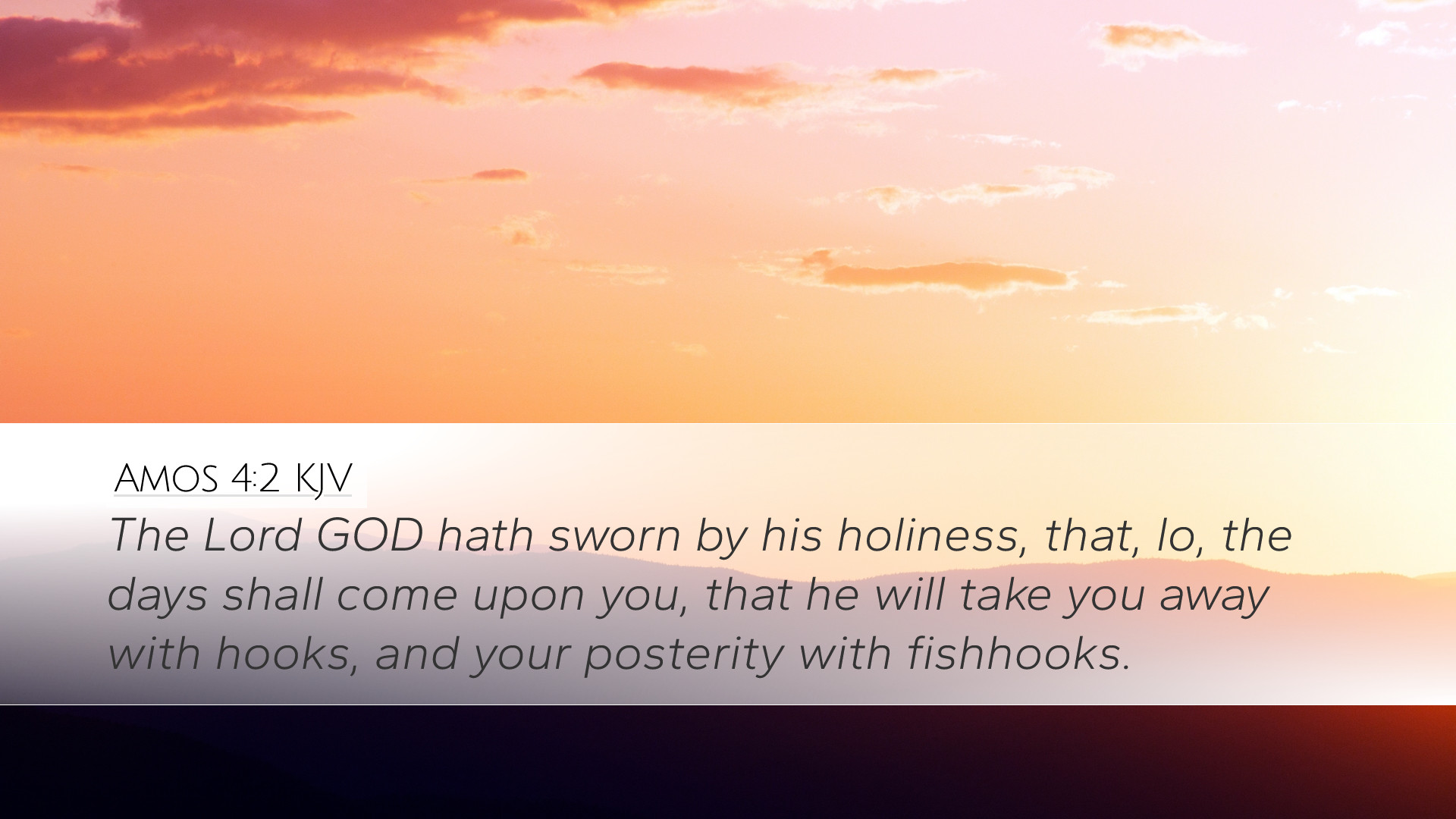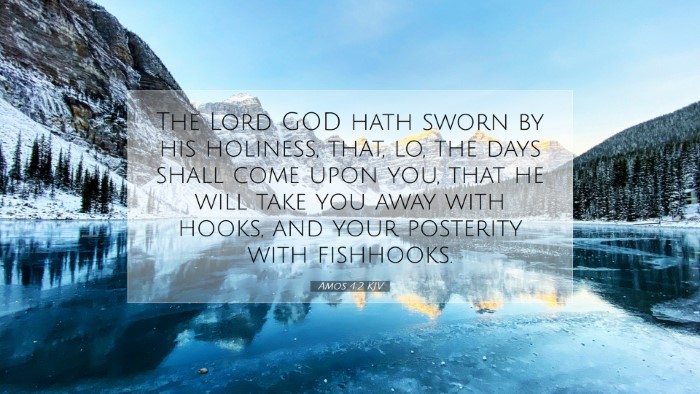Old Testament
Genesis Exodus Leviticus Numbers Deuteronomy Joshua Judges Ruth 1 Samuel 2 Samuel 1 Kings 2 Kings 1 Chronicles 2 Chronicles Ezra Nehemiah Esther Job Psalms Proverbs Ecclesiastes Song of Solomon Isaiah Jeremiah Lamentations Ezekiel Daniel Hosea Joel Amos Obadiah Jonah Micah Nahum Habakkuk Zephaniah Haggai Zechariah MalachiAmos 4:2
Amos 4:2 KJV
The Lord GOD hath sworn by his holiness, that, lo, the days shall come upon you, that he will take you away with hooks, and your posterity with fishhooks.
Amos 4:2 Bible Commentary
Amos 4:2 Commentary
Verse Text: "The Lord GOD has sworn by his holiness that, behold, the days are coming upon you, when they shall take you away with hooks, and your posterity with fishhooks."
Contextual Background
In the book of Amos, a prophet to the Northern Kingdom of Israel, we see a stark warning against the idolatry, social injustices, and moral decay prevalent among the people. Amos, a shepherd and farmer by trade, delivers God’s messages rooted in divine authority and righteousness. His prophecies often highlight the impending punishment for sin, specifically addressing the complacency of Israel in the face of their covenant with God.
Theological Insights
This verse encapsulates the serious implications of divine judgment. The *swearing by God's holiness* emphasizes the certainty and gravity of the imminent judgment. It signals that God’s inherent holiness demands justice, and there is no escaping the consequences of sin.
1. The Holiness of God
Matthew Henry comments that the holiness of God is the foundation of His authority and justice. This attribute not only calls for moral purity among His people but also signifies that He is deeply affected by their disobedience. God swears by His holiness to show that His judgment is unavoidable and irrevocable.
2. The Use of Hooks
The imagery of being taken away with *hooks* and *fishhooks* conveys a vivid picture of captivity. Albert Barnes notes that this metaphor illustrates the cruelty and humiliation the Israelites will face, being dragged away like fish caught in a net. This serves as a warning of the complete loss of autonomy that comes with divine judgment.
3. The Coming Judgment
This prophecy highlights the inevitability of calamity. Adam Clarke emphasizes that the “days are coming” signifies a timing under divine sovereignty – it will happen; it’s not a matter of ‘if’ but ‘when.’ This should serve as a sober reminder of how God’s patience is limited, and His justice will prevail.
Lessons for Today
While Amos's message was directed towards ancient Israel, its implications transcend time. The contemporary church is also challenged to reflect on complacency, injustice, and the seriousness of sin.
1. The Call to Righteousness
The holiness of God calls His people to a standard of righteousness. Pastors and church leaders should instill this importance in their congregations, encouraging them to live lives that reflect God’s character.
2. Understanding Consequences
Theologians often stress the need for faithful warning about the consequences of turning away from God. Just as Israel faced judgment, modern believers must understand that sin has real repercussions which can affect individuals and communities.
3. Anticipating God’s Justice
The certainty of future judgment should prompt self-examination among believers. Students of the Word are encouraged to delve deeply into Scripture to understand God’s character and the gravity of being in right relationship with Him.
Conclusion
Amos 4:2 serves as a profound reminder of God’s holiness and the seriousness of the consequences that arise from the rejection of His ways. It calls us to examine our lives, uphold justice, and remain vigilant in our walk with the Lord, knowing that His judgment is as certain as His grace.


